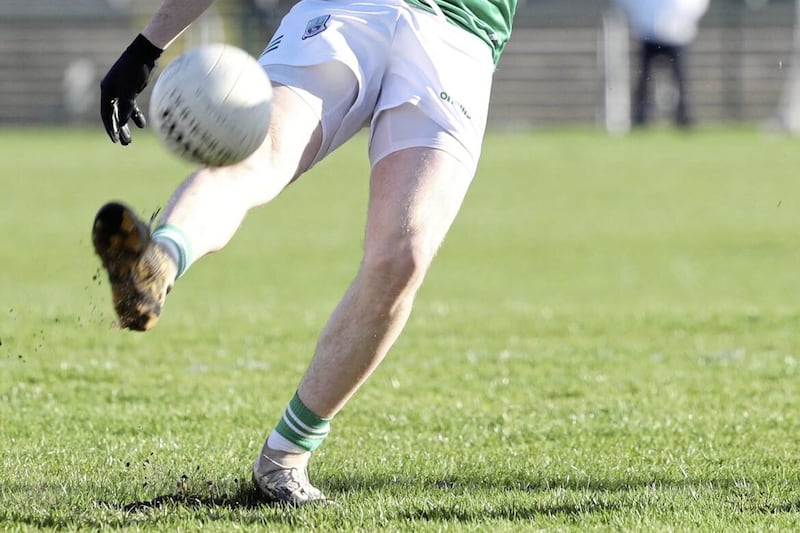AS the north's most senior auditor steps down after 13 years in post he talks to political correspondent John Manley about civil service reform, protection for whistleblowers and the value of devolution.
KIERAN Donnelly's career as an auditor spanned almost 40 years, with the latter half, for the most part, under a devolved administration.
In a system that he says is guided by "influence rather than sanction", he believes having power-sharing at Stormont in place is better than the alternative.
"Devolution has many imperfections but broadly it is a lot better than the accountability regime that we had under direct rule," he says.
The Co Armagh-born comptroller and auditor general, who was appointed in 2009 to the role from which he is now stepping down, recalls how little time Westminster committees would dedicate to scrutnising audit reports and believes the assembly's Public Accounts Committee (PAC) does a much more thorough and effective job.
“There was an accountability gap that the PAC plugged," he says. "I think ours holds its own really well for a small region."
He argues that the Stormont committee gives "political clout" to his office's work: "I believe there's a synergy between the Northern Ireland Audit Office and the PAC that makes them greater than the sum of the parts."
He speaks highly of late MLAs like John Dallat, Billy Bell and Seamus Close, who were to the fore in the committee's early days.
Mr Donnelly recalls how a probe into governance at what was then the Northern Ireland Tourist Board in the mid-00s met with "kickback" from a regional civil service "not used to that level of accountability", which could mean officials being questioned to up to five hours by assembly members.
He believes public bodies are now more accustomed to criticism and accountability.
"Today I'm be pleased to say as the vast majority of committee recommendations are fully accepted," he says.
"I can think of very, very few that were not accepted and in cases where they are not accepted there's an explanation that contrasts markedly with early years of devolution, where it was like pulling teeth with the system."
The departing chief auditor also praises that last PAC, chaired by former DUP MLA William Humphrey.
"That last committee was only there for a couple of years from a five-year mandate but still managed to undertake a lot of work," he says.
"During that period there were 14 reports and a lot of them on big strategic issues, such as the capacity and capability in the civil service, not just getting into the symptoms of problems, but the root causes. They also did important work on the planning service, addiction services, digital transformation – they were busy and were always ready to take our reports and go a step further with them."
The retiring chief auditor has seen many financial scandals in his time and ranks the relatively recent Renewable Heat Incentive (RHI) scheme among the biggest.
In the aftermath of Sir Patrick Coghlin's 2020 inquiry, the auditor produced his own report monitoring how the scandal and subsequent probe had led to a review of civil service practices.
"I think I concluded that 18 of the 40 recommendations were implemented after two years but there was still work to do," he says.
He welcomes a tightening of the rules around Stormont special advisers and a revised civil service code of conduct as a "good step in the right direction" but notes that the "proof is always going to be in the pudding".
One particular area where the comptroller and auditor general continues to have concerns is in the manner in which whistleblowers are treated.
"There are a couple of areas where maybe progress has been less fulsome, and a particular one I’m focused on is the arrangements when people raise concerns, either from outside the service or within," says Mr Donnelly.
Concerns raised by a member of the public about RHI were effectively ignored, while the case of Department of Agriculture vet Dr Tamara Bronckaers shows that whistleblowers highlighting issues for the public good are not always treated sympathetically by senior officials.
"What I've recommended is all the big organisations should have ‘raising concern champions' – go-to people that everybody knows who they are for support," he says.
"So your frontline worker, and you have a concern, you can safely go to somebody and that person then couldn't have done would have the confidence to raise the issue at the highest level."
Asked if believes progress in this regard is satisfactory, the ever-understated Mr Donnelly says: "we have a journey to go on...well, no, there's more work to be done on that."
RHI exposed failings within the civil service but the auditor general believes the organisation is now undergoing a cultural shift, albeit slowly.
"I am leaving this post pretty optimistic that there there are signs of genuine cultural trends and transformations in leadership at the top," he says.
"I think traditionally we're coming from a situation where the civil service was quite closed. I think it's opening up more, bringing in new people, and that's good."
Yet he would welcome greater acknowledgement of civil service failings, an "openness about mistakes, where they are looked on as learning opportunities".
"That's what makes a healthy organisational culture, and I do see many organisations that are like that, but want to see more that are like that," he says.
"I am tolerant where mistakes are made, particularly during the crisis situations, like during the pandemic, or decisions that have been made at fast pace. Where I'm much less tolerant is when there's a cover up of the mistakes, then I will bring those out publicly. So it's how organisations handle mistakes – that's a sort of test of culture."
In regards to addressing the 'silo culture' identified by the RHI inquiry, Mr Donnelly believes "the jury's out on that one" but points to a "renewed impetus towards genuine joined-up government".
"If you look at something like addiction services, it's not just about the Department of Health, it's the Department of Justice and others," he says.
"These problems are deep on the need to holistic solutions across government and I am certainly very pleased that the new leadership of the civil service is on that page on joined up thinking across the system is very much on their their focus."
On spending matters, the auditor welcomes the establishment of the Northern Ireland Fiscal Council, an independent body that aims to bring greater transparency and scrutiny to regional public finances.
"I think it's important we get a debate on what needs to be done and how are we going to finance it, rather than how much money have we got and what can we do with it?" he says.
"There needs to be more visionary and long term thinking and innovative ways to finance public services over and above the the block grant – and I think to the fiscal commission's reports are an interesting start to that debate."








